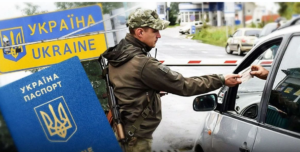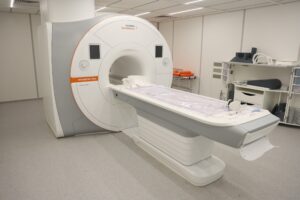
A study published by Business Wire, citing a US survey (online, SurveyMonkey; men and women aged 22-40), showed that 69% of American men believe that the fear of being considered “creepy” (terrible, repulsive) affects how they interact with women, and 44% of men said that this fear reduces the likelihood of such interactions.
At the same time, some media outlets, discussing anxiety when meeting in person, cite data suggesting that women’s demand for offline dating may be higher than men assume: one such report states that 77% of women aged 18-30 would like men to meet more often in real life (68% of women aged 30+ are also mentioned).

On Monday, January 12, most western regions and Vinnytsia region will see light snow, with no significant precipitation in the rest of the country, according to the Ukrainian Hydrometeorological Center. Roads will be icy in some places.
The wind will be westerly and northwesterly, 5-10 m/s.
Temperatures in the northern part will be 15-20° at night and 10-15° below zero during the day. In the southern part, in Zakarpattia and Prykarpattia, it will be 6-11° at night and 2-7° below zero during the day. In the rest of the country, temperatures will range from 12-17°C at night to 7-12°C during the day.
In Kyiv, there will be no significant precipitation, with icy patches on the roads in some places. The wind will be westerly, 5-10 m/s. Temperatures will range from 17-19°C at night to 13-15°C during the day.
According to the Boris Sreznevsky Central Geophysical Observatory, the highest temperature during the day on January 12 in Kyiv was recorded in 2005 and amounted to 9.2°, the lowest at night – 26.9° below zero in 1950.
On Tuesday, January 13, there will be no significant precipitation in Ukraine, with only light snow in the western regions.
In most of the western regions, Kherson, Zaporizhia, Dnipropetrovsk, Poltava, and Kharkiv, there will be fog in some places at night and in the morning.
There will be icy patches on the roads in some places.
The wind will be variable, 3-8 m/s.
The temperature in the northern regions will be 17-22° below zero at night and 10-15° below zero during the day. In the southern part, temperatures will range from 8-13° at night to 2-7° below zero during the day; in the rest of the country, temperatures will range from 12-17° below zero at night to 7-12° below zero during the day, and in the Carpathian and Transcarpathian regions, temperatures will range from 4-9° below zero.
In Kyiv, there will be no significant precipitation, with icy patches on the roads in some places. The wind will be variable, 3-8 m/s. Temperatures will range from 19-21° at night to 13-15° below zero during the day.

The number of foreigners with valid residence permits in Turkey as of December 31, 2025, was 1,151,969, according to statistics from the Presidency of Migration Management of the Turkish Ministry of Interior.
Compared to the end of 2024, the figure increased by 95,337, or approximately 9%.
The structure of residence permits by type in 2025 includes 426,926 short-term permits, 220,434 student permits, 168,455 family permits, and 336,154 permits of other categories.
According to data on distribution by province, more than half of all foreigners with residence permits live in Istanbul – 579,932. Next are Antalya (109,571) and Ankara (73,263).
In terms of citizenship, Ukraine is in the top 10 for short-term residence permits (21,257) and in the top 10 for family residence permits (6,505).
The Migration Directorate reminds that foreigners planning to stay in the country longer than the visa or visa-free regime period, i.e., more than 90 days, must apply for the appropriate residence permit through the electronic system, and reference information can be obtained through the YIMER center (157 within Turkey).

According to Serbian Economist, real estate prices in Serbia are market-driven and not “inflated,” said Ervin Pashanovich, a member of the board of the Association of Real Estate Agents of the Serbian Chamber of Commerce and Industry (Privredna komora Srbije).
According to him, the real estate market in the country remains “free” and without interference, and price levels are confirmed by demand. He noted that the average price per square meter of housing in Belgrade is about €2,400, with attention often focused on the most expensive projects, although there are different price levels on the market.
Pasanovic also pointed out that the majority of purchases are made by citizens seeking to resolve their housing issues, rather than investors, since, in his estimation, rental yields imply a long payback period: an apartment costing €100-150,000 can be rented for around €600 per month, which corresponds to a 24-30 year return on investment.
He added that the share of buyers purchasing housing with loans has reached a record 36%, and the share of foreigners among real estate buyers in Serbia is about 2%.
Pasanovic also commented on the application of the law on simplified accounting and registration of property rights, noting that the possible entry into the market of some previously unaccounted properties, in his opinion, will not lead to a noticeable decrease in prices, since a significant part of them are not located in central areas.
According to data from the Republic Geodetic Authority of Serbia (RGZ), in the third quarter of 2025, the average price of apartments on the secondary market in Belgrade was €2,691 per square meter, and in new buildings, €2,598 per square meter.
The RGZ reported that the total volume of the Serbian real estate market in the third quarter of 2025 was estimated at €1.8 billion with 30,511 sales contracts, and apartment transactions accounted for about 60% of the total market value (€1.1 billion).
https://t.me/relocationrs/2087

Passenger traffic across the Ukrainian border in the first week after New Year’s, from January 3 to 9, jumped by about 27% to 598,000, according to data from the State Border Service. According to the data, the number of border crossings for departure increased to 258,000 (for comparison, data for January 7 was not taken into account due to the lack of statistics from the State Border Service for December 30) from 223,000 a week earlier, while the increase for entry was even more significant – to 271,000 from 184,000.
The number of vehicles passing through checkpoints this week also increased to 95,000 from 77,000 a week earlier, and the flow of vehicles carrying humanitarian cargo increased to 342 from 268.
According to the State Border Service, as of 6:00 p.m. on Saturday, the largest number of cars and buses waiting to leave Ukraine at the Krakovets checkpoint were 45 and 8, respectively. The queue at the Ustyluh checkpoint consisted of 25 vehicles, at the Ugrinov checkpoint – 15 vehicles, and at the Shehyni checkpoint – 12 buses.
Twenty-five cars and seven buses were waiting to cross the border with Slovakia at the Uzhgorod checkpoint, and five cars were waiting at the Maly Berezny checkpoint.
At the border with Hungary, there was only a small queue of five cars at the Tisa checkpoint, while unusually long queues were recorded at the Porubne and Dyakovo checkpoints on the border with Romania – 50 and 35 cars, respectively, as well as at the Mamalyga checkpoint on the border with Moldova – 35 cars.
The total number of border crossings this week is the same as last year. At that time, 302,000 people left Ukraine and 292,000 entered the country over the same seven days, while this week the figures were 295,000 and 303,000, respectively, although the flow of cars was higher last year – 117,000 versus 109,000, which is probably due to weather conditions.
Last year, a 16.9% increase in passenger traffic was recorded during this week, but the following week saw a 13.3% decrease.
As reported, from May 10, 2022, the outflow of refugees from Ukraine, which began with the start of the war, was replaced by an influx that continued until September 23, 2022, and amounted to 409,000 people. However, since the end of September, possibly influenced by news of mobilization in Russia and “pseudo-referendums” in the occupied territories, followed by massive shelling of energy infrastructure, the number of people leaving exceeded the number of people entering. In total, from the end of September 2022 to the first anniversary of the full-scale war, it reached 223,000 people.
During the second year of full-scale war, the number of border crossings to leave Ukraine exceeded the number of crossings to enter by 25,000, during the third year by 187,000, and since the beginning of the fourth year by 195,000, according to the State Border Service.
As Sergei Sobolev, then Deputy Minister of Economy, noted in early March 2023, the return of every 100,000 Ukrainians home results in a 0.5% increase in GDP.
In its July inflation report, the National Bank worsened its migration forecast: while in April it expected a net inflow of 0.2 million people to Ukraine in 2026, it now forecasts a net outflow of 0.2 million, which corresponds to the estimate of the net outflow this year. “Net return will only begin in 2027 (about 0.1 million people, compared to 0.5 million in the previous forecast),” the NBU added, confirming this forecast at the end of October. In absolute terms, the National Bank estimates the number of migrants currently remaining abroad at about 5.8 million.
According to updated UNHCR data, the number of Ukrainian refugees in Europe as of December 11, 2025, was estimated at 5.311 million (5.331 million as of November 14), and 5.860 million (5.850 million) worldwide.
In Ukraine itself, according to the latest UN data for July this year, there were 3.340 million internally displaced persons (IDPs), compared to 3.757 million in April.

In 2025, Ukrainian hospitals received 16 magnetic resonance imaging (MRI) machines and six linear accelerators, according to the Ministry of Health.
The Ministry of Health also reports that, with the support of donors to the UNITED24 platform, 30 armored vehicles for evacuating the wounded, seven ambulances, 11 digital X-ray diagnostic systems, and 50 incubators for newborns were purchased.
In addition, last year hospitals received highly specialized equipment for resuscitation, hearing aids, dialysis, and life support for patients, including systems for lung ventilation, blood circulation support, blood and water purification, and other critical equipment.
For the first time, equipment was purchased to establish nuclear medicine centers in Kyiv and Lviv. Also in 2025, 20 1.5 Tesla MRI machines, 26 digital X-ray systems were purchased within the Ukraine Facility, as well as nine items of important equipment for the Heart Institute of the Ministry of Health of Ukraine.